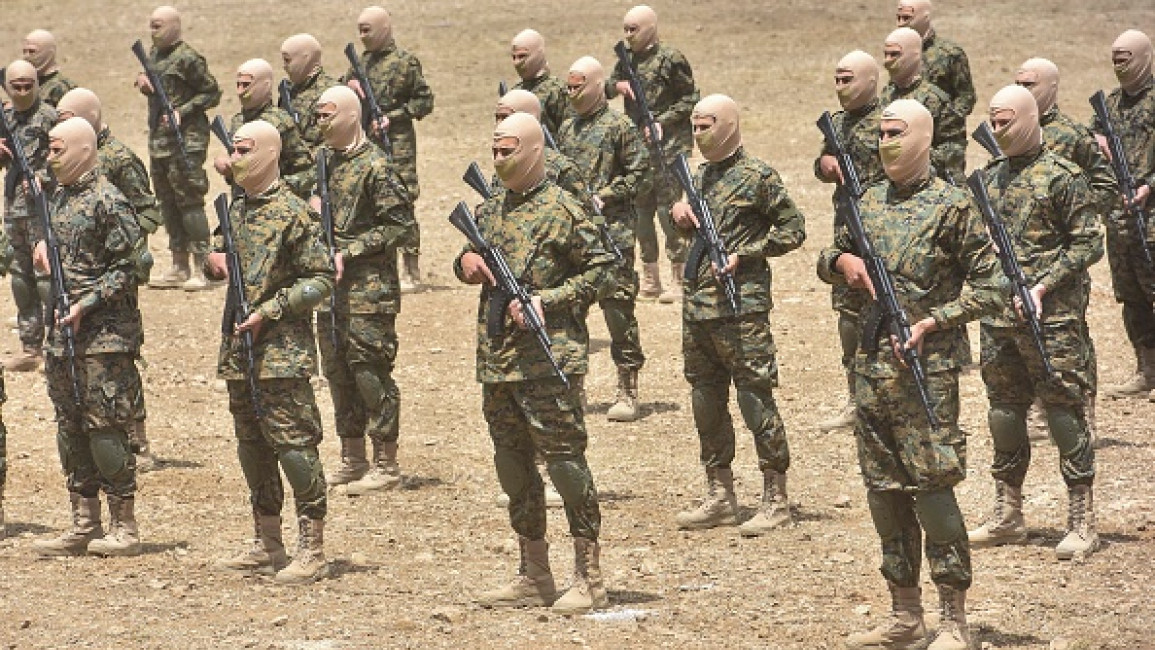Who is Wissam Tawil and what is Hezbollah's Radwan Force?
Israel killed Wissam Tawil, a senior commander of Hezbollah's elite Radwan Force, in a strike in southern Lebanon on Monday.
Tawil's killing marked the loss of the most senior Hezbollah commander since the beginning of cross-border clashes between the group and Israel on 8 October.
He was killed when his car was struck by Israeli forces in the southern Lebanese town of Khirbet Salem, around 15 kilometres from the Lebanese-Israeli border.
Hezbollah said in a statement that Tawil, who also went by the nom de guerre as "Hajj Jawad", was the "face of those villages marching with the flood to al-Aqsa" in Jerusalem.
The group also released pictures of Tawil meeting with former Iranian Revolutionary Guard Corps commander Qasem Soleimani and other high-ranking members of Hezbollah.
#Israel may not have launched its often-threatened major campaign against #Hezbollah in #Lebanon, but today, it killed a leader in its special ops "Radwan Force," Wissam al-Tawil in a precision strike.
— Charles Lister (@Charles_Lister) January 8, 2024
Tawil had played a key role alongside #Assad's regime in #Syria too. pic.twitter.com/wzdm7e5lVQ
A Lebanese security official said that Tawil played a "leading role in managing operations in the south".
Lebanese and Israeli media reported after his death that he was responsible for Hezbollah's operation on Saturday, in which a salvo of rockets targeted the Meron airbase for the first time since hostilities began.
The strike, which Hezbollah claimed crippled Israel's aerial surveillance capabilities in southern Lebanon, was in retaliation for Israel's assassination of top Hamas official Salah al-Arouri on 2 January in southern Beirut.
Israel downplayed the impact of Saturday's attack, saying that maintenance work on the damaged facilities in Meron was already underway.
What is the Radwan Force?
Previously a relatively unknown military unit of Hezbollah, the Radwan Force has gained renewed attention in recent months.
The military unit, however, is not new. The special forces unit is trained to conduct small raids in Israel and has existed since at least 2006, when it carried out the capture of Israeli soldiers – the catalyst for the July 2006 war between Israel and Hezbollah.
Previously called the "rapid intervention unit," the group was re-named in 2008 after the killing of Imad Mughniyeh, who had the nom de guerre of "Hajj Radwan".
After Hezbollah intervened in favour of the Syrian regime in the Syrian civil war, Radwan Forces began to fight alongside the Syrian military and its allied militias.
The unit was reportedly deployed in southern and northern Syria to fight rebel elements, as well as in Quneitra in the Syrian Golan Heights, where Iranian-linked elements have maintained a presence for years.
Analysts have suggested that the unit's time-fighting in Syria has made its ranks battle-hardened and increased its ability to fight as a commando force, as opposed to other more guerrilla-style units of Hezbollah.
Does this mean war?
The killing of Tawil comes right on the back of the assassination of al-Arouri in Beirut, the latter of which analysts described as a departure from the normal rules of engagement governing the fighting between Hezbollah and Israel.
Nasrallah vowed to retaliate for the assassination of al-Arouri but signalled that Hezbollah does not want its retaliation to tip fighting into a full-scale war between Hezbollah and Israel.
The killing of Tawil, while escalatory, does not necessarily fall outside the existing rules of engagement.
Israel has targeted Hezbollah fighters in southern Lebanon since the beginning of the current round of fighting three months ago, including the son of Hezbollah Raad, the head of Hezbollah's parliamentary bloc.
Israel has also regularly killed Hezbollah commanders in Syria since the group's involvement in the Syrian civil war began.
Still, Tawil’s killing is the highest-ranking Hezbollah official killed by Israel since 8 October. The killing also occurred at a moment when tensions between Hezbollah and Israel, as well as regionally, were at an all-time high.


![Minnesota Tim Walz is working to court Muslim voters. [Getty]](/sites/default/files/styles/image_684x385/public/2169747529.jpeg?h=a5f2f23a&itok=b63Wif2V)




![Debris near Rafic Hariri International Airport [Getty]](/sites/default/files/styles/image_330x185/public/2176162423.jpeg?h=a5f2f23a&itok=MCSK9mkM)
![An Israeli air strike on Jabalia killed teenage journalist Hassan Hamad [Screengrab/X]](/sites/default/files/styles/image_212x120/public/2024-10/hassan%20hamad1.jpg?h=c12e0b96&itok=KstD_5xk)
